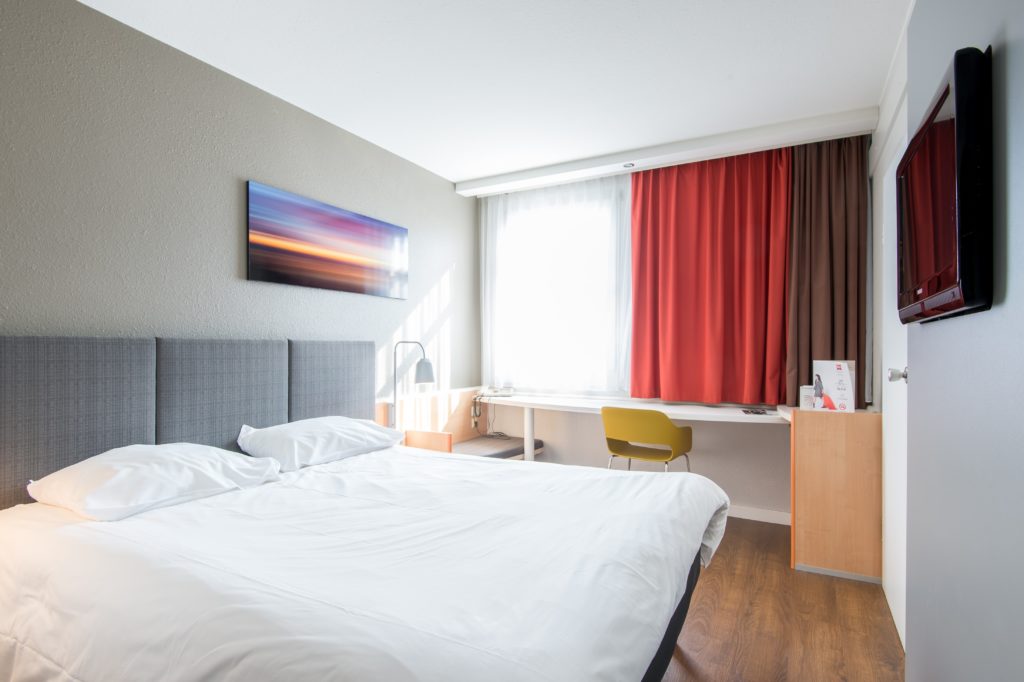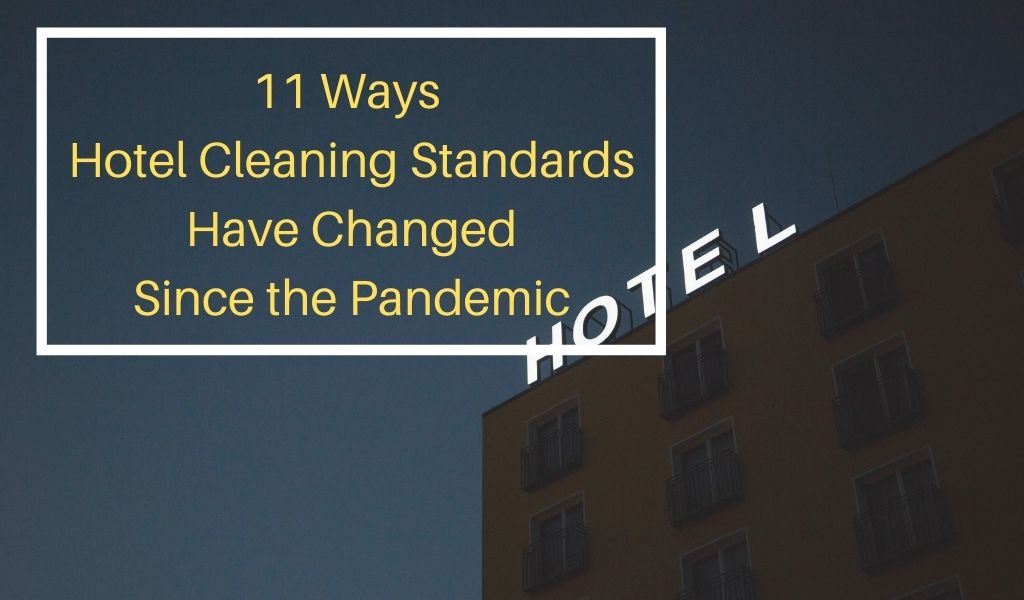The arrival of COVID-19 forced the janitorial industry to change in big ways. Learn more about how hotel cleaning standards have adapted, and what they may look like moving forward.
Hotels across the globe have always done their best to adhere to strict cleaning protocols. However, in a world changed by the COVID-19 pandemic, hotel cleaning standards became even tougher to help ensure the safety of guests. Many hotels launched initiatives to show what they’re doing to protect employees and guests—and they’re doing a lot.
While new hotel cleaning standards will indeed differ from facility to facility, there are some fundamental changes that most hotels have adopted. In addition to the adjustments to cleaning practices, which we’ll get into momentarily, hotels are also asking guests to take some responsibility for everyone’s safety at all times when not in their rooms. All of this has been done according to the recommendations of health experts and CDC guidelines.
If you’re curious to see how hotel cleaning standards are different than they were before COVID-19 came along, we’re here to get you started with a list of some of the most common pandemic and post-pandemic cleaning practices. This list is by no means exhaustive, and we recommend reading the CDC guidance thoroughly to ensure you’re doing everything you can for your business and guests. You might also want your teams to have cleaning checklists to ensure they don’t forget any of these changes!
Ensure your employees know about any new hotel cleaning standards with the checklist function in Janitorial Manager. Find out more about how we can help your business stay safe from the pandemic by signing up for a free discovery call today!

11 Hotel cleaning standards that keep you, your team, and your clients safe
1. Reduced room cleaning during each stay
If a guest is booked to stay at a hotel for longer than one night, many hotels no longer provide daily cleaning services. Instead, they wait until the guest checks out, then go through a rigid cleaning process. This helps minimize contact between people, thus reducing the risk of transmitting viruses. Guests can request more frequent cleanings if they want, and all rooms are still always cleaned between guests.
2. Laundry handled in rooms
Instead of the old way of doing things where housekeeping employees might take a pile of sheets or towels out of a room and place them in a bin, the bins now come into the rooms with them to reduce the chance of spreading germs into common areas like hallways. Employees are also advised not to shake out soiled linens anymore, even inside the room.
3. Laundry heats up
When the laundry does make its way to the washing machine, the new guidance requires that all linens be washed on the warmest possible setting as dictated by the manufacturer and CDC guidance. This helps kill germs that may linger on soiled linens. A word of caution, though: Pay close attention to the manufacturer’s instructions so you don’t end up ruining sheets and towels, which would then cost money to replace.
4. Extended time between rebooking
Another of the more common changes to hotel cleaning standards is the wait time between rebooking rooms. When a guest leaves, the room is cleaned immediately and then left for anywhere from 24-72 hours before a new guest is booked. If there’s any concern that the room might have been contaminated, the cleaning cycle is even more stringent, and the wait time to rebook the room could be as long as two weeks.
5. Sealed rooms
To help ensure that hospitality staff adheres to the rules, rooms are labeled and locked in case someone is accidentally booked to a room that hasn’t had enough time to sit and let the remaining germs die. This also helps guests know that they should steer clear of those rooms until the notice is removed, though guests should always avoid rooms that aren’t occupied by a member of their party.
6. Increased signage
Lodging facilities are posting more signage in both the front of the house and the back of the house to remind employees and guests about hotel cleaning standards and assist with employee training. Guests will likely see signs at entryways, near elevators, and other common areas. Employees can expect to see guidance posted in equipment rooms, break rooms, and other conspicuous places they frequent daily.
7. Hand sanitizers everywhere
At the start of the pandemic, hand sanitizer was hard to come by, but the supply has now caught up with the demand, and guests can expect to find sanitizer stations throughout hotels. For adherence to the CDC guidelines, that sanitizer should be at least 60% alcohol-based and help prevent the spread of germs that can cause COVID-19.
8. PPE availability
Both guests and cleaning staff now have better and more frequent access to PPE, such as face masks and disposable gloves. While state directives may vary, individual businesses may still determine whether or not they wish to require masks. Beyond that, however, there’s little reason employees can’t wear masks at all times to protect their health, even if it isn’t required.
9. More hand-washing
One of the greatest defenses against COVID-19, as well as the seasonal flu and the common cold, is to wash hands regularly. Since housekeeping staff comes into contact with so many germs so regularly, they are required in many places to wash their hands significantly more than they may have been doing it before.
10. Focus on high-touch areas
Hotel cleaning standards have also adapted to focus on high-touch surfaces, like elevator buttons, telephones, remote controls, light switches, etc. Bathrooms also get cleaned more frequently, with a focus on sinks and faucets, toilet flushers, and other surfaces commonly used by more than one person.
11. Enhanced ventilation
Per CDC recommendations, hotels are also doing what they can to improve ventilation throughout their facilities both during and after guests are present. If at all possible, open windows to allow for air exchange and to dilute any lingering contaminants in the room.
While many of these changes are a result of our experience with COVID-19, they are also incredibly helpful in increasing the overall cleanliness of hotels and other public areas. The benefits of these changes will last far longer if we stick to them.
Track inventory, keep cleaning checklists, manage inspections, and so much more with Janitorial Manager. Click here to learn more!

